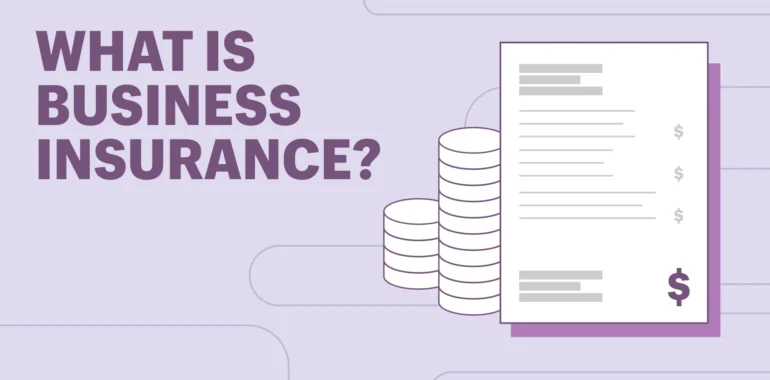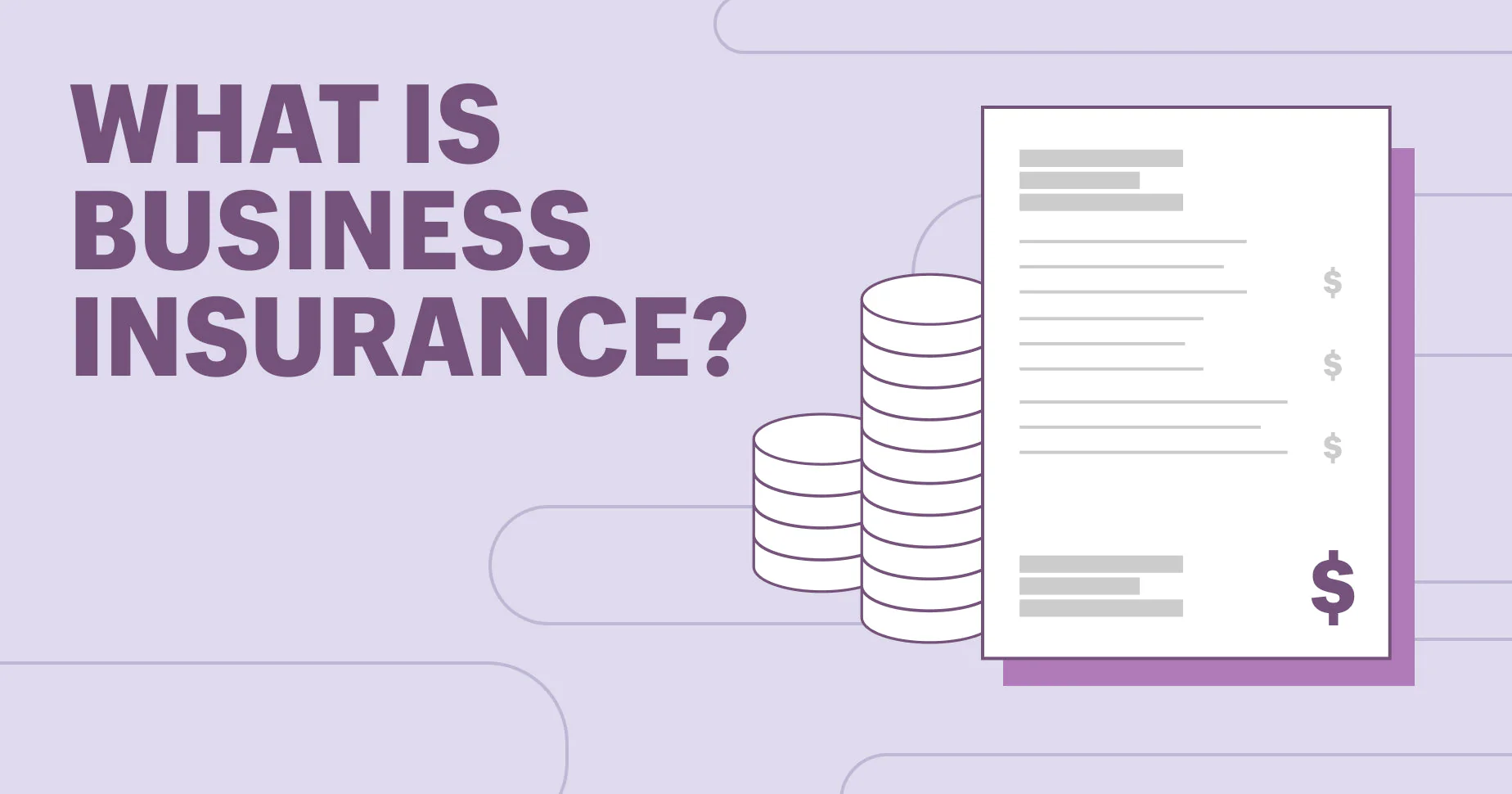Business Insurance: Protecting What You’ve Built

Business Insurance: Protecting What You’ve Built
Running a business is like planting a seed and nurturing it every single day. You invest your time, energy, money, and heart into building something of value. But as any business owner knows, the journey is not without risk. A single accident, lawsuit, or natural disaster can set you back years—sometimes even put you out of business altogether.
That’s where business insurance comes in.
While it’s not the most glamorous part of entrepreneurship, business insurance is one of the most critical. It’s not just about ticking boxes or meeting legal requirements—it’s about protecting your livelihood, your employees, and the future you’ve worked so hard to create.
In this article, we’ll explore what business insurance is, why it matters, what types you might need, and how to choose the right coverage for your unique needs.
What Is Business Insurance?
Business insurance is a broad term that covers various policies designed to protect companies from financial losses due to unexpected events. These events can include property damage, legal liability, employee-related risks, theft, or natural disasters.
The goal of business insurance is simple: to minimize the financial impact of risk so you can focus on growth, not recovery.
Why Is Business Insurance Important?
Many business owners underestimate how vulnerable they are to risk—especially small businesses. In fact, according to the Insurance Information Institute, about 40% of small businesses never reopen after a disaster.
Here’s why having insurance in place is essential:
1. Protects Against Financial Loss
An unexpected lawsuit, a fire, or even a slip-and-fall accident can result in thousands (or millions) of dollars in damages. Insurance can cover legal fees, repairs, or medical costs that would otherwise come out of your pocket.
2. Gives You Peace of Mind
Business ownership is stressful enough. Knowing that you’re covered in case something goes wrong allows you to sleep a little better at night.
3. Builds Credibility
Clients and partners often see insurance as a sign of professionalism. It shows you’re serious about your business and responsible enough to protect your stakeholders.
4. Fulfills Legal Requirements
Depending on your industry and location, certain types of insurance may be mandatory. For example, workers’ compensation is required in most U.S. states if you have employees.
5. Protects Employees
Your team is one of your greatest assets. Insurance like workers’ compensation helps take care of them if they’re injured on the job, which is not only good business—it’s the right thing to do.
Types of Business Insurance You Might Need
There’s no one-size-fits-all policy when it comes to business insurance. Your needs will vary based on your industry, business size, location, and risks. Here are the most common types of coverage to consider:
🏢 1. General Liability Insurance
This is the foundation of most business insurance plans. It protects your business from claims involving bodily injury, property damage, or personal injury (like libel or slander).
Example: A customer slips and falls in your store. General liability helps cover their medical expenses and your legal costs if they sue.
💼 2. Professional Liability Insurance (Errors & Omissions)
This is especially important for service providers—like consultants, accountants, lawyers, or designers. It covers negligence, mistakes, or failure to deliver services as promised.
Example: A client claims your advice caused them financial loss. This insurance can help pay for your legal defense.
🏠 3. Commercial Property Insurance
Protects your physical assets—like buildings, equipment, inventory, and furniture—from fire, theft, or natural disasters.
Example: A fire damages your warehouse and all your inventory. This insurance helps cover the cost of repairs and replacements.
📉 4. Business Interruption Insurance
If your business is forced to close temporarily due to a covered event (like a fire or flood), this insurance can cover lost income and operating expenses.
Example: After a hurricane, your restaurant can’t open for a month. This policy helps cover your payroll and bills during the downtime.
👷♂️ 5. Workers’ Compensation Insurance
Required in most states, this covers medical expenses and lost wages if an employee is injured or becomes ill on the job.
Example: A warehouse employee strains their back lifting heavy boxes. Workers’ comp covers their treatment and time off work.
🚗 6. Commercial Auto Insurance
If you or your employees use vehicles for business purposes, this covers accidents, property damage, and liability.
Example: Your delivery van gets into an accident. Commercial auto insurance pays for damages and any third-party injuries.
🔐 7. Cyber Liability Insurance
In our digital age, data breaches are a real threat. Cyber liability helps cover the cost of recovery after a cyberattack or data loss.
Example: Hackers steal customer credit card info from your website. This policy covers legal fees, notification costs, and credit monitoring for affected customers.
🧳 8. Business Owner’s Policy (BOP)
A BOP bundles general liability and property insurance into a single, cost-effective package. Ideal for small businesses.
Example: A BOP covers your storefront damage from a break-in and protects against a customer injury lawsuit.
How Much Does Business Insurance Cost?
The cost varies depending on several factors:
- Type of business and industry
- Number of employees
- Business location
- Annual revenue
- Coverage limits and deductibles
- Claims history
On average, small businesses might pay anywhere from $500 to $3,000 per year for general liability insurance. Bundled policies like a BOP can offer discounts.
How to Choose the Right Insurance for Your Business
Here’s a step-by-step guide to help you choose wisely:
✅ 1. Assess Your Risks
Make a list of possible threats to your business. Think about property damage, lawsuits, employee injuries, and data breaches.
✅ 2. Understand Legal Requirements
Check what your state or industry requires. For example, real estate agents, doctors, and contractors often have specific insurance mandates.
✅ 3. Work with a Broker or Agent
An experienced insurance agent or broker can guide you through policy options and help you avoid gaps in coverage.
✅ 4. Compare Quotes
Don’t just go with the first quote you get. Compare rates, coverage, and customer reviews from at least 2–3 providers.
✅ 5. Review and Update Annually
Your insurance needs will change as your business grows. Make it a habit to review and update your policy every year.
Real Story: How Insurance Saved a Business
Let’s say Sarah owns a small bakery. One night, an electrical fire destroys her kitchen. Without commercial property and business interruption insurance, she would’ve faced thousands of dollars in repairs, no income for weeks, and possibly the end of her dream.
But because she had the right coverage, the insurance helped her rebuild, pay her staff during downtime, and reopen within two months. She’s still serving cookies—and now swears by her insurance policy.
Final Thoughts: Better Safe Than Sorry
Business insurance isn’t just a piece of paper—it’s a safety net. It’s there when things go wrong. It cushions the blow, helps you bounce back, and lets you keep doing what you love without fear of the unexpected.
Whether you’re running a local coffee shop, a freelance design agency, or a multi-location enterprise, the right insurance gives you the power to operate with confidence.
Because when you protect your business, you protect your people, your passion, and your purpose.
